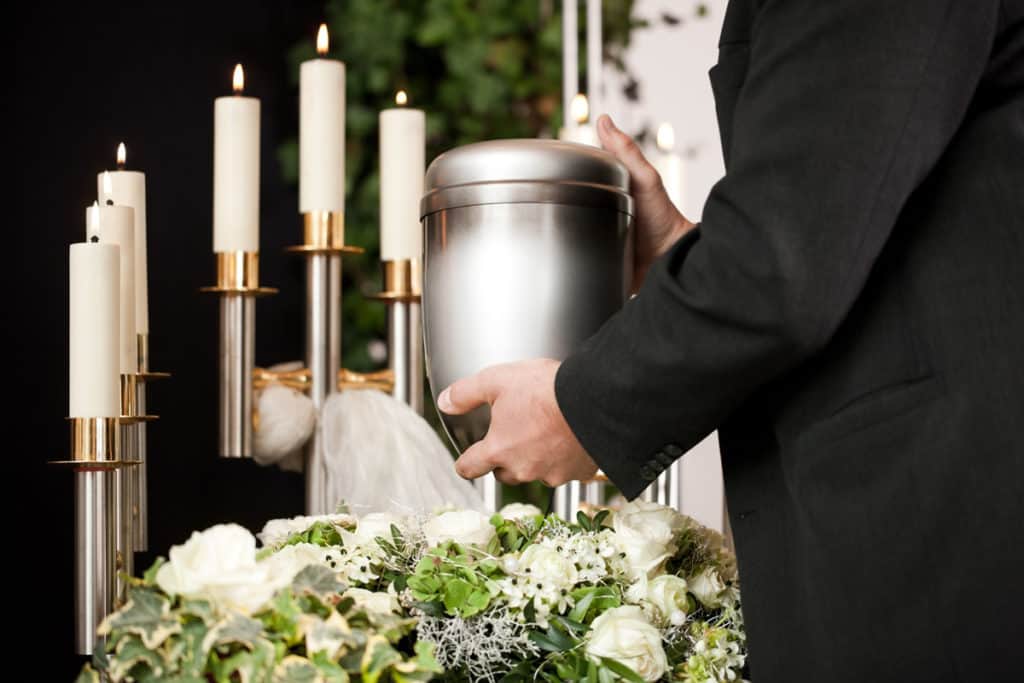Arranging a funeral or cremation in North Carolina
This funeral-planning guide aims to help residents of North Carolina plan or arrange a funeral or cremation, understanding how local state law affects their purchasing options. The Federal Trade Commission’s ‘Funeral Rule’ outlines federal legislation that governs licensed funeral homes in the sale of funeral goods and services and protects consumers’ rights. However, some state funeral boards have such a powerful lobby that local state funeral legislation supersedes federal law.
How do you choose which funeral home or cremation provider suits your needs?
A funeral or cremation is often referred to as a “distressed purchase” because it is a large, single purchase that most people make when recently bereaved and at a time of extreme emotional distress. For this reason, we may not make the best decisions and are easily swayed by those advising us.
One of the most important aspects of arranging a funeral is to ensure you select the ‘right’ funeral provider. Finding a funeral home or cremation provider who can cater to exactly what you need and implicitly understands your needs can make the funeral and bereavement process much easier to contend with.
Too often, people tend to go to the funeral director that they either already know of or were recommended to, and this may not necessarily be who is best for their needs. Before consulting a funeral home, try and clearly outline your key needs.
Do you want a burial or a cremation? Is there urgency in arranging the funeral, or do you need time to arrange for the family to attend? Does the funeral home need to be very close for visitation purposes? Or are you happy to use the services of a funeral home further afield? How important is the cost?
Funeral expenses can vary significantly between funeral homes, even in the same area, so shopping around can be very important. Once you have framed a clear outline of your key priorities and needs for a funeral, you can narrow down who potentially suitable providers will be.
The North Carolina Board of Funeral Service (NCBFS) licenses all funeral establishments in North Carolina. When selecting a funeral establishment, you should ensure you are dealing with a reputable, licensed funeral home.
Direct Cremation Services from $995. Click Here For Contact
How do I find a funeral home or cremation provider in North Carolina?
Well, you are already in the right place. There are over 1,000 funeral homes in the state of North Carolina. US Funerals Online has a complete directory of all funeral homes and cremation providers in North Carolina.
Use our Funeral Homes in North Carolina section to find funeral homes in your city or area.

Do you want a burial or cremation?
As mentioned earlier, this is probably the most important decision affecting your funeral planning. Deciding between burial or cremation is an entirely personal choice, either of the deceased or the surviving family. Burial is still more popular in North Carolina, but the cremation trend is affecting all states, and we are seeing more North Carolinians opting for cremation.
Cost is most definitely a significant factor in the rising cremation rate. An average burial costs $7,848 (NFDA 2022), which doesn’t include the cost of the cemetery plot. In contrast, an average cremation service costs around $3,000, and a basic cremation service can be arranged for around $1,000.
Visit our Ultimate Guide to Cremation to learn more about cremation costs, service options, cremation laws, the cremation process, and other FAQs.
Can I arrange a ‘home funeral’ or green burial in North Carolina?
Yes, it is legal to conduct a home funeral in North Carolina. Furthermore, no laws specifically prohibit burial on your own land, although you should check with local county zoning. Family-directed funerals, where the family manages the death care of their loved one at home, are experiencing something of a revival, especially as it can provide a more intimate, personal, and less expensive funeral option.
There are three natural green burial sites in North Carolina, and you can find support from local organizations that advocate for home funerals. The Funeral Consumer Alliance groups listed below can direct you to your nearest support group.
Green Cremation, Water Cremation, or Aquamation in North Carolina
North Carolina state has legalized alkaline hydrolysis, otherwise known as water cremation or aquamation. This is a much more carbon-reduced cremation alternative than flame cremation. It uses water and an alkaline solution to gently dissolve organic matter, and the remaining bones are ground to present remains similar to cremation ashes.
There are three known providers of aquamation in NC in Wilmington, Shelby, and Hillsborough. The cost of a water cremation ranges from $1,995 to $2,695.
Visit our Guide to Aquamation to learn more about this option.
What is the cost of a funeral or cremation in North Carolina?
This is the question that many people turn to the Internet to find out these days. Unfortunately, it is the one element many funeral homes leave out of their websites. There is not always a simple answer, and many a funeral home will tell you this, as they offer a whole array of ‘a la carte’ services.
The bottom line is that a funeral or cremation can cost you as much as you want to spend. But more importantly, if finance is an issue, and you are concerned about how much a funeral will cost, be sure to look for fixed package deals where you can be sure of the total price.
The DFS Memorials network of cremation providers in North Carolina all offer the best value simple cremation package in their area. All are local, licensed funeral homes committed to serving their community.
Contact your nearest provider by visiting DFS Memorials, North Carolina.

What help is available with funeral expenses in North Carolina?
With more and more people struggling financially today, this question is being raised more frequently. The kind of and level of help with funeral expenses varies considerably between states and even between counties. In some areas, there is county-level support for indigents, and those on welfare or low income, to assist them to meet funeral costs.
This support can be minimal and may only cover a basic direct disposition. For this reason, the state is now dealing with more ‘unclaimed bodies,’ where families sadly walk away because they have no money. In these cases, after 10 days, the body is offered to the Commissioner of Anatomy, and/or the Chief Medical Examiner arranges the final disposition.
If you are struggling to meet funeral expenses, you may wish to consider the following: a whole-body donation to science – this can be a means to cover the disposition at no cost. Read more below about donating a body to science in North Carolina. There is a one-time death benefit from the SSA of $255 for those that qualify.
You may also find it useful to read our article on ‘What are your options for paying for a funeral or cremation?’. It covers just about every possibility of raising funds to cover funeral expenses.
If the deceased was a veteran or a dependent of a veteran, they are entitled to certain benefits such as a cemetery plot and grave marker. The VA cemeteries in Raleigh, New Bern, and Wilmington are now closed for interments, but Salisbury has space for both casketed and cremated interments. There are also three state-run veteran cemeteries in Spring Lake, Jacksonville, and Black Mountain. Contact your local VA office to find out more.
Sending funeral flowers in North Carolina
If you wish to send funeral flowers in North Carolina, US Funerals Online has partnered with BloomsToday to offer our visitors a 25% – 50% discount on sending sympathy and funeral flower arrangements. Click on the BloomsToday link to view the full selection of sympathy flowers, or call (800) 317-4807.
Is embalming required in North Carolina?
No, embalming is not required by law. However, you may find that some funeral homes have policies that require embalming if an open-casket service is to be conducted or if the body is to be held in storage at their establishment for an extended period of time.
Do not feel pressured to have your loved one embalmed if you do not wish to. It can be important to check if a potential establishment has refrigerated storage if you are specifically keen to avoid embalming.
What are my options for purchasing a casket or alternative container?
In North Carolina, state law allows you to purchase a casket from a third-party seller according to the FTC’s funeral rule. This can make a significant saving on the cost of a casket, and your funeral home MUST accept your casket and cannot charge a handling fee. However, due to the impact of this rule on casket sales for funeral homes, many are now willing to price-match a casket price from a retailer.
If you consult with a funeral home about caskets, they MUST supply you with a Casket Price List (CPL). Bear in mind that the state law does NOT require that a casket be used for burial. For a cremation, the law requires that a “suitable, rigid combustible container” be used. This can be a sturdy cardboard box.
What are burial and cemetery plot requirements in North Carolina?
Firstly, as mentioned above, there is no law prohibiting burial on your land in North Carolina. However, certain local ordinances may apply, and you should adhere to guidelines that require burial to be at least 300 feet from any public water supply. It is also suggested to avoid power lines and boundaries, and there must be at least 18 inches of soil on top of the casket or coffin. It is recommended to produce a map marking the location of any burial sites.
For burial in a designated cemetery, no law requires a burial vault. However, many cemeteries have their own regulations and stipulate burial vaults must be used. This is largely to protect the integrity of the land but is also a huge way for cemeteries to make additional revenue. Because cemeteries have quite strict regulations, it is highly recommended you thoroughly check the ‘rules’ at any cemetery before you commit to a cemetery plot. Regulations can affect costs to open and close a grave, the erection of a grave marker, and the kind of perpetual care that is included.

Can I pre-plan a funeral or cremation? How does North Carolina state law govern preneed plans?
Yes, you can pre-plan a funeral or cremation in North Carolina. The state requires that only licensed funeral establishments may sell preneed contracts, and they must obtain a special license to sell such contracts. Preneed contracts may be funded through a trust fund or insurance policy.
There has long been some controversy about preneed trust funds and their safety, so you should carefully consider the details and terms of any contract. Particularly such things as how secure it is and what happens if you move or wish to cancel.
Do consider that a safe alternative is to put aside appropriate funds in a Payable-on-death (POD) account so a family can access this at the time to cover funeral expenses.
What are the laws for scattering ashes in North Carolina?
As the cremation rate increases, more people opt to scatter their loved ones remains. State law in North Carolina permits the scattering of cremated remains on private land (with the consent of the landowner). Ashes may also be scattered over any uninhabited public land, public waterways, or sea, as long as Environmental Protection Agency (EPA) regulations and common-sense guidelines are adhered to.
If you scatter the ashes yourself, the general guidance is to scatter at least 100 yards from any road, trail, body of water, or developed facility. It is perhaps advisable to wait a little time before scattering, just to be sure about the decision, as it is, of course, irreversible. Alternatively, keep some ashes in a keepsake urn or memento.
If you wish to scatter ashes off the coast of North Carolina or at Cape Hatteras or Okracoke, you must notify the regional EPA office within 30 days. Environmental Protection Agency [Region 4], Attn: Gary Collins, 61 Forsyth Street Southwest, Atlanta, GA 30303 Phone: (404) 562-9395
Sea scattering must occur three nautical miles at sea, and only biodegradable flowers and containers may be used.
Are whole-body donations permitted in North Carolina?
Yes, you can donate your body to science in North Carolina. It can be a unique way to do something to help future generations. Wake Forest University’s Baptist Medical Center accepts donations for educational purposes. Transportation to the facility is the family’s responsibility, and the cremated remains are returned to the family after two years.
Remember that not all donations are accepted at the time of death. It is preferable to have pre-planned a donation and have completed the necessary paperwork. There are certain restrictions on suitability for donation purposes.
What do you do if your loved one dies away from North Carolina?
Unfortunately, this can happen more often nowadays, as we are a more mobile society. If your loved one dies away from North Carolina, you will need to consider whether to make arrangements to have the body transported back or have a cremation at the place of death, and the cremated remains shipped back.
You can find out more about this in our funeral shipping section.
If you do travel regularly for work, pleasure, sport, visiting family, or snow-birding, you may wish to consider our great value Travel Protection Plan. This plan costs just $450 for an individual for lifetime protection against the costly expense of returning a body home if a death occurs 75 miles (or further) from your residence in North Carolina. It also provides global coverage. Domestic funeral shipping costs $3,000, and International repatriation can start at around $6,900.
Visit our article on Travel Protection: Your Guide to Affordable Funeral Shipping, or click on the link below to enroll today.
If you do travel regularly for work, pleasure, sport, visiting family, or snow-birding, you may wish to consider our great value Travel Protection Plan. This plan costs just $450 for an individual for lifetime protection against the costly expense of returning a body home if a death occurs 75 miles (or further) from your residence. It also provides global coverage. Domestic funeral shipping can cost from $3,000, and International repatriation can start at around $6,900.
Where do I get a copy of a death certificate from in North Carolina?
Copies of a death certificate can be obtained from N.C. Vital Records. The office is at North Carolina Vital Records (Cooper Memorial Health Building)
225 N. McDowell St., Raleigh, NC 27603
The first copy costs $24.00, with each additional copy charged at $15.00. If same-day service is required, add an additional $15.00.

What should you do if you have a complaint about funeral services or products you have purchased?
Suppose you should have reason to be dissatisfied with the services or products provided to you by a licensed funeral home in North Carolina. In that case, you can formally complain to the North Carolina Board of Funeral Service, 1033 Wade Avenue, Suite 108, Raleigh, NC 27605. Phone: (919) 733-9380. More information here:
Related Articles:
Resources:
Funeral & Cremation Planning Guide – Charlotte
Funeral Homes in North Carolina
Low-cost cremation providers in North Carolina
North Carolina Board of Funeral Service (NCBFS)
North Carolina Cemetery Commission
Funeral Consumers Alliance of the Piedmont
Funeral Consumers Alliance of Western North Carolina



